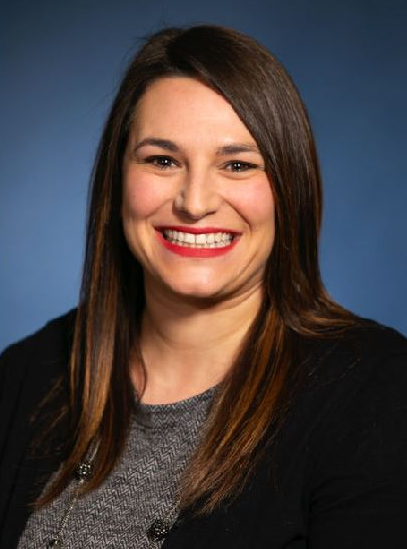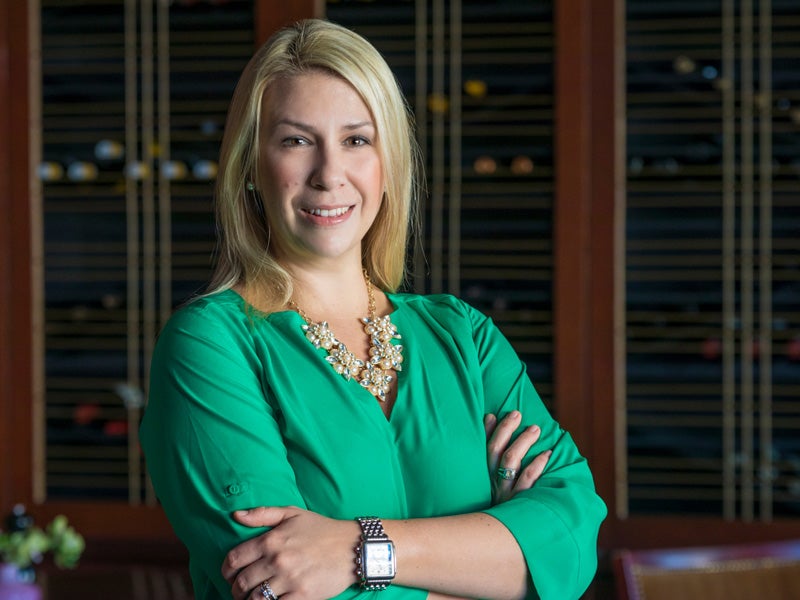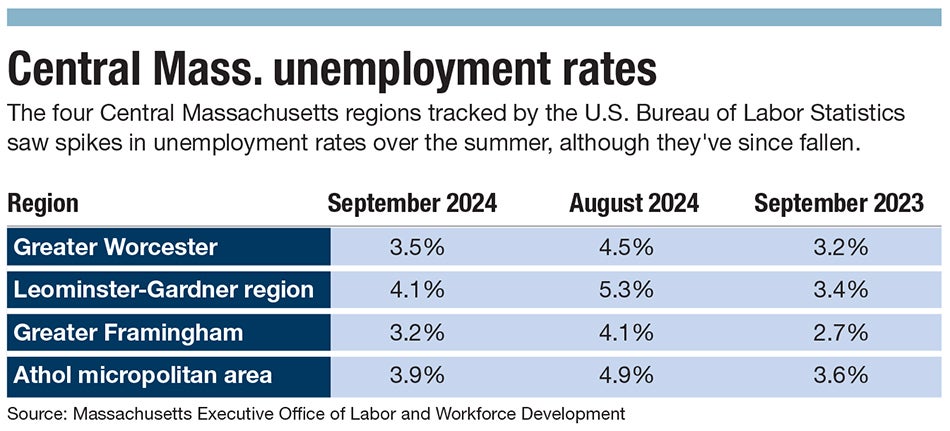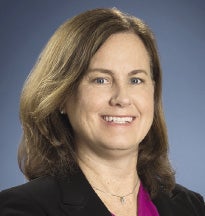Four and a half years after the COVID-19 pandemic altered the configuration of the U.S. workforce, Central Massachusetts employers are still navigating the reverberations of a landscape that changed overnight.
Get Instant Access to This Article
Subscribe to Worcester Business Journal and get immediate access to all of our subscriber-only content and much more.
- Critical Central Massachusetts business news updated daily.
- Immediate access to all subscriber-only content on our website.
- Bi-weekly print or digital editions of our award-winning publication.
- Special bonus issues like the WBJ Book of Lists.
- Exclusive ticket prize draws for our in-person events.
Click here to purchase a paywall bypass link for this article.
Four and a half years after the COVID-19 pandemic altered the configuration of the U.S. workforce, Central Massachusetts employers are still navigating the reverberations of a landscape that changed overnight.
In April 2020, the U.S. lost 20.5 million jobs, surging the nation’s unemployment rate to 14.7%, according to the U.S. Bureau of Labor Statistics.
Unemployment quickly rebounded, though, particularly after federal interventions, such as the CARES Act. Over the course of the next year, employers were faced with a new challenge: a workforce shortage, as the pandemic led to waves of early retirements, workers leaving to start their own businesses, and employees shifting to part time to take care of children and family.
In response, employers increased wages to attract talent and keep their businesses afloat. The number of remote workers more than tripled, and BLS reports that between December 2020 and June 2024, the average private employer cost for employee compensation rose 31%, from $40.58 per hour to $53.15.
For Central Massachusetts employers today, staying competitive in attracting the post-pandemic workforce means continuing to boost wages and offer job seekers the workplace flexibility they’ve grown accustomed to.
Rethinking recruitment
As Central Massachusetts’ largest employer with more than 17,000 workers, UMass Memorial Health in Worcester has seen a decrease in traditionally prepared candidates: those with the credentials, background, and experience for the jobs they’re applying for, said Kaitlyn Urlaub, vice president, talent acquisition at UMMH.

To address this, UMMH utilizes its earn-and-learn programs where employees can maintain a position within the system while setting aside time to learn new skills. These programs are offered to critical roles, such as surgical technicians, medical assistants, and computed tomography techs.
The system has cut down the requirements for these roles to attract applicants.
“We need to tap into candidate pools that we might not have in previous years,” said Urlaub.
UMMH’s talent acquisition team meets with students at high schools, vocational programs, and those on associates and bachelor’s degree tracks.
“[It’s] really just one long interview. If you give an opportunity to a student, they get to learn, they get comfortable with the unit, they learn about the organization. We want to be able to extend them an offer,” said Urlaub.
UMass Memorial has extended its recruitment internationally, especially for hard-to-fill roles requiring specialized credentials, such as surgical technicians and occupational therapists.

In the restaurant industry, Central Massachusetts has a strong talent pool, but applicants don’t have the credentials they used to pre-2020, said Caitlyn Carolan, president of the Worcester Restaurant Group.
Applicants are younger and less experienced, Carolan said, meaning management needs to spend more time training new hires.
This isn’t necessarily a negative, said Carolan. WRG owns restaurants The Sole Proprietor, 111 Chop House, and VIA Italian Table, all in Worcester, and having young talent brings new energy.
The most difficult positions to find applicants are those requiring certain skill sets, such as cooks, she said. Applicants who have been trained in culinary schools are few and far between. “So when you find somebody good, you’ve got to hang on to them. You’ve got to work hard to hang on to them,” she said.
Paying up
To stay competitive for applicants, UMass Memorial conducts an annual market review, signaling trends in compensation to leadership for consideration. For example, UMMH had difficulty recruiting for respiratory therapists and computed tomography technologist roles, so it adjusted the compensation.
UMMH has bolstered its referral program. Pre-pandemic, the referral bonus for registered nurses was $3,000, while post-pandemic, that incentive has increased to $5,000. The number of positions eligible for referral bonuses increased from 20+ to 50+.
Like other restaurants, Carolan raised wages during the height of COVID, a feat she said was made easier due to government funding from agencies like the U.S. Small Business Administration.
In 2024, the need to offer higher starting wages isn’t as dire as it was a few years ago, but the need to stay competitive in the job marketplace remains, she said.

Remote, remote, remote
While compensation is still a factor, another major request from applicants is the desire for a remote or hybrid work, said Kyle Pardo, executive vice president of Boston-based AIM HR Solutions, a subsidiary of the trade group Associated Industries of Massachusetts.
“People are actually looking for really the whole package: the whole culture and the environment and what that all looks like,” Pardo said.

The rise in remote work has made it more difficult to hire in the hospitality industry, said Carolan. Restaurant work is physical labor, and employees are on their feet working long nights and weekends.
“We work when people play,” she said. “Our need to have people working dinner shifts and weekend shifts is always going to be there, because that's just what we do. And it's been more challenging to find people that want to work those hours.”
Some job seekers are prioritizing the opportunity for flexible work hours, with varied schedules as opposed to the traditional 9 to 5, Pardo said.
“Everybody is really looking for flexibility,” said Urlaub. “They might have a full-time role somewhere else, or they might be in the period of their life where they're raising young children, taking care of aging parents, and they need more flexibility.”
UMMH has extended work-from-home options into more positions in departments such as talent acquisition, patient access, and finance.
UMass Memorial is leaning into its Baylor positions, those roles where employees solely work a set amount of weekends and maintain part- or full-time employment with benefits. While Baylor positions were available in nursing pre-pandemic, UMMH has expanded those roles into the fields of radiology, respiratory, and nursing support.
While companies are working to adapt to the shifting wants of job seekers, others want to get more employees back into the office, said Jeffrey Turgeon, executive director of the MassHire Central Region Workforce Board in Worcester.

Transparency ahead
In July, Gov. Maura Healey signed into law salary range transparency legislation mandating employers with 25+ employees include pay ranges in their job descriptions, effective July 1, 2025.
The new law will put pressure on companies to have competitive plans in place for applicants and current employees, Pardo said. The change may mean less negotiation room for applicants.
“It will kind of level the playing field. At least both parties will go into the discussions on the same page,” said Pardo.
Mica Kanner-Mascolo is a staff writer at Worcester Business Journal, who primarily covers the healthcare and diversity, equity, and inclusion industries.
